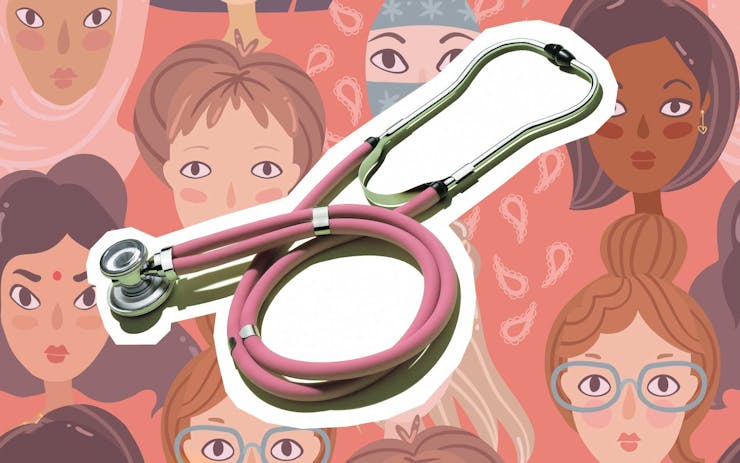A new study by a researcher at Harvard is tackling the subject of cannabis’ medicinal properties for menstrual pain. The study is pairing with cannabis brand Foria, and will observe the effects of Foria’s cannabis suppositories on 400 women over several months.
It is the first study of its kind, and researchers hope that it will pave the way to clinical trials in the future.Find Healing Cannabis Near YouTo learn more about this fascinating topic, we caught up with researcher and author, Dr. Mary Clifton, an expert in cannabis and CBD medicine. She’s also a licensed New York State medical marijuana provider.
Dr. Clifton was eager to discuss the topic of cannabis for menstrual pain and how the study ties into a broader understanding of research around women’s health.
*Editor’s note: interview has been edited for length and clarity.
Leafly: What makes cannabis a suitable choice for treating menstrual pain?
Dr. Mary Clifton: Cannabis has been used for thousands of years for all kinds of chronic pain syndromes. We think that most of the pain coming from menstrual cramping is related to prostaglandin production, through the breakdown of unhealthy fats. When you take a Motrin, that’s very effective at blocking the breakdown, but we know from endocannabinoid data that when there is an area of pain or cramping, the body is going to automatically ramp up the CB receptors in that area.
So, [the receptors are] waiting for endocannabinoids to modulate the inflammation and the pain response. For patients who are experiencing that localized pain, the supplemental THC or CBD cannabidiol and medical marijuana or CBD oil would be beneficial for helping to modulate the localized pain; either taken orally or internationally. A lot of my patients get nice results with intravaginal administration, with CBD.
Speaking of such, the Harvard study says they are exclusively using suppositories. What are your thoughts on that?
DC: I think the Harvard study is using an intravaginal suppository. I think everybody’s trying to come up with a novel mode of delivery or a special way that you can use the product. But I don’t think we have to wait for a suppository that is specifically designed for intravaginal use. There really shouldn’t be any limitations or any serious risks to just using CBD oil topically yourself; you should be able to get that local absorption.
Would smoking or vaporizing be as effective?
DC: The topical balms and ointments probably have some value in terms of reducing pain, reducing inflammation, but there’s various issues with absorbing across the skin surface that are eliminated when you inhale or ingest something, so I think getting a more rapid onset of administration and having more reliable dosing using a tincture or a vape is going to give you a very reliable onset of action.
The vape almost instantly [has an onset of action] and the tinctures—if they’re held in your mouth—[have an onset] between around eight minutes and in some cases quite a bit shorter.
Do you think the results of this Harvard study will help normalize cannabis which will make more doctors feel open to talking about it?
DC: Well, I think it’s a matter of comfort level and training. The reality is that our training is really solidly in western medicine. So, you know, asking a western medical doctor to give you recommendations about yoga or chiropractic work or even something as simple as dentistry—it’s really out of our range.
“There are all kinds of documentation in literature of a chronic kidney stone getting misdiagnosed as menstrual pain or endometriosis.”
You really do need to seek out a doctor who’s taken the time to train themselves or have a coach; we designed a coaching program that allows doctors to get trained in cannabis, and have all of the data and research that I’ve reviewed as well as weekly access to me.
As long as you have somebody who’s been properly trained, I don’t think they necessarily need to be a western medical doctor. There are all kinds of documentation in literature of a chronic kidney stone getting misdiagnosed as menstrual pain or endometriosis. So, before you self-diagnose and move to treatment, it’s wise to have a medical doctor take a really good look and think really hard about chronic pelvic pain to make sure that we’re not heading in the wrong direction with your care.
What would you say to people who are skeptical about whether menstrual pain is worthy of medical cannabis?
DC: There’s definitely value. Prostaglandin are breakdown products of arachidonic acid. So, when you take a Mortin you block that breakdown of arachidonic acid to prostaglandin and so it isn’t terribly responsive to narcotic pain management.
It’s not a new receptor, a modifiable situation, it’s not something where taking a narcotic is going to give a lot of relief. Motrin only goes so far for people. It’s not as though we can escalate the treatment in the standard Western model of adding a narco, a Vicodin, or morphine because it just doesn’t work.
A lot of people take a Motrin and they’re still in a lot of pain, and a lot of people are alleviating the pain with CBD or cannabis which is really interesting.
Would you say CBD is more effective than THC when it comes to menstrual pain?
DC: I think that’s individually variable. I think many of my patients start with a CBD product and then transitioned to THC products for pain management if they get a better result that way. Some patients really seem to appreciate that entourage effect of multiple cannabidiol.
This Harvard study seems pretty unique, would you say that, overall studies, concerning women’s health tend to be less common?
DC: We practice OB and pediatrics kind of like an old wives’ tale. It’s hard to get informed consent from a child because they obviously can’t provide informed consent. So we’re operating from a lot of population-based data where we treated a thousand kids and here’s what happened to them. And the same is true of women, because everybody is so afraid that the woman is going to become pregnant or that they’re going to negatively impact an unborn baby—so there’s super limited data.
“We've been using this product for 1,000 years for various reasons, and really have not been able to see a trend of serious birth defects or other issues.”
But that’s changing now. It is required to provide a broad range of people in studies instead of just men. I mean, there’s a lot of racial profiling that also goes on in medical research where people are avoiding [certain ethnicities] to try to make the study cleaner.
I think as we go forward, we’ll have more data, and as cannabis used more recreationally, we will be able to see [results]. For example, with thalidomide, we saw the flipper arms right away and people put the ideas together. I mean, we’ve been using this product for 1,000 years for various reasons, and really have not been able to see a trend of serious birth defects or other issues. I find that very reassuring.
Do you have any advice for women talking to their OBGYNs about cannabis?
DC: I think the risk is low and the benefit is substantial, so it’s probably a reasonable thing to bring up with your OB and just let them know that you’re trying [cannabis] as a supplement. I guess it would depend on the doctor that you’re working with. Some doctors are going to be more sensitive to the use of non-prescribed medicines than others.
Would you say the benefits include not only being honest with your doctor, but also helping to normalize medicinal cannabis use?
DC: Yeah, that’s great. I think that the more that we talk about it, the more it’s taken seriously. I just don’t think that anybody knows the research—we don’t have it presented to us, then we don’t learn about it, then we don’t understand that there’s pretty good research now.
Tons of preclinical research-like animal models and a good understanding of how the drug works exists, but there’s also plenty of clinical research where patients have been studied and seeing reduction in pain and reduction in opioid use. So, it’s time to move it into the mainstream.






